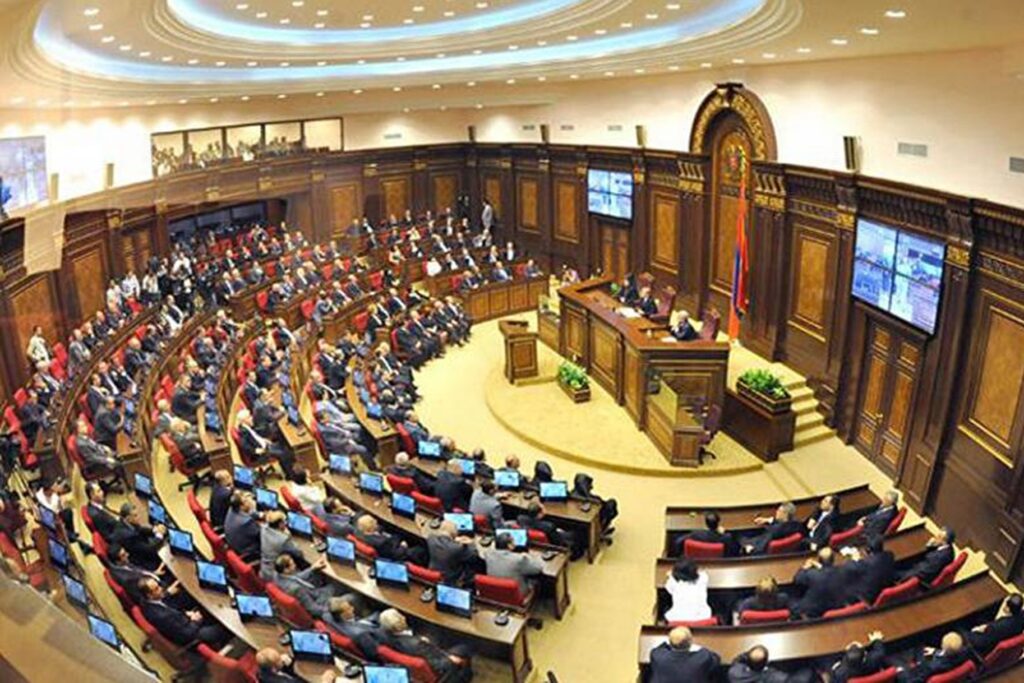The opposition Reborn Armenia party has announced it is leaving parliament, causing the country’s last remaining opposition bloc to collapse.
The party had been allied with Armenian Revolutionary Federation (ARF), forming the country’s second-largest parliamentary force.
Reborn Armenia was represented by four members, three of whom have left the parliament, while an exception has been made for Zemfira Mirzoyeva, the representative of the Assyrian minority in parliament.
The Assyrian MP’s party membership has been temporarily suspended. Any other Reborn Armenia members who want to take seats in parliament will have to give up their party membership.
‘Today, we continue to be of the opinion that all the grounds that forced the boycott of the National Assembly sessions months ago continue to still be relevant today’, the party’s statement reads.
‘The Reborn Armenia party will continue its activity as opposition within the framework of the declared values and policies of the party.’
The Reborn Armenia party was established in 2020 by the former governor of the southern Syunik region, Vahe Hakobyan, shortly after the Second Nagorno-Karabakh war. The party allied with the ARF and the country’s second president, Robert Kocharyan, in the 2021 elections, with the coalition winning around 30% of the votes and occupying 36 of 107 seats, four of which were won by Reborn Armenia members.
When Kocharyan refused to enter parliament, the Reborn Armenia–ARF bloc became the parliament’s main opposition.
The Homeland Party, another minor opposition party, left the parliament in June after months of protests in the streets of Armenia’s capital city demanding a change of government. The party, established by former Pashinyan ally and ex-head of the National Security Service Artur Vanetsyan, was part of a parliamentary bloc with Armenia’s former ruling Republican party.
[Read more on OC Media: Armenian opposition hits the streets again]
With the two newer and smaller parties having left parliament, Armenian legislative power has been returned to the country’s two former ruling parties and current ruling party — the ARF, the Republican party, and the Civil Contract party.
In the two years since the Second Nagorno-Karabakh War, and following recent Armenia-Azerbaijani conflicts, Armenia’s opposition has been largely absent from parliamentary sessions, declaring it would oust Prime Minister Pashinyan through street protests. Despite three months of rallies, the protesters did not achieve their intended aim of a change of government.
Armenia’s ruling Civil Contract party threatened to expel opposition members of parliament for not fulfilling their obligations during the anti-government protests, but stepped back after the first discussion on an appropriate bill.




 29 November 2022
29 November 2022



